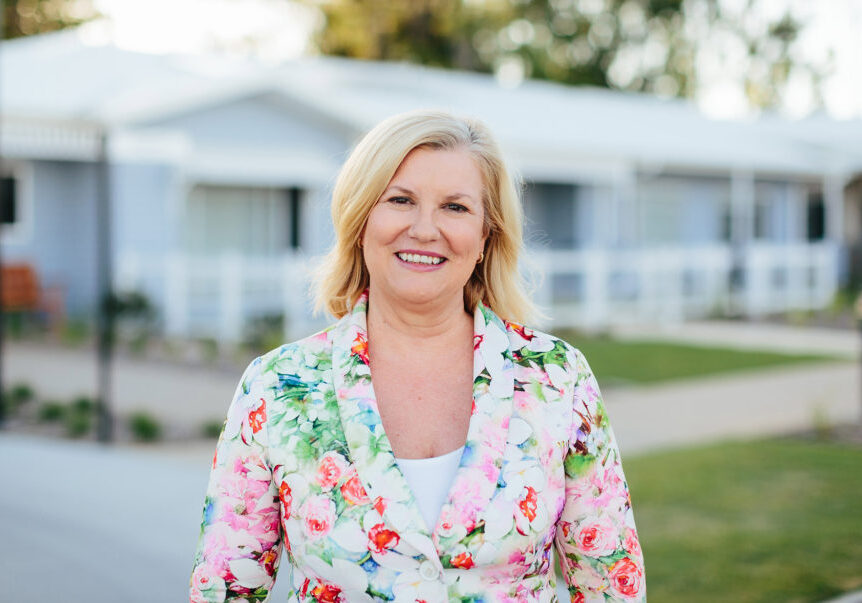Exercise as a Health Benefit for those who already have Complex Care Needs
We all know that a regular exercise regime is beneficial to our physical and mental health. However, did you know that only around one in 10 Australians over 50 exercise enough to gain cardiovascular benefit, and that people over 65 need an adequate fitness level to help maintain independence, overcome illness and reduce the chance of high risk disease? Physical exercise, whether it’s a gym session, or even gardening or cleaning, can help elderly people in a multitude of ways. Not only does it help your physical health, it can also positively benefit your mental health by releasing endorphins, boosting your confidence and creating a regular social environment.
Physical activity and exercise has many benefits, especially for people in aged care who already have complex care needs. For example, people living with dementia can seriously benefit from undertaking regular physical activity and exercise. According to Dementia Australia, “Engaging in physical activity and exercise can help prevent muscle weakness, mobility problems and other health complications associated with inactivity for people with dementia. It can also help reduce anxiety and depression and increase social inclusion”.
Regular exercise doesn’t only benefit our physical needs, it can also have a huge impact on people’s mental wellbeing. Elderly people are more likely to experience social exclusion and loneliness, which can then lead to depression and anxiety. According to Jane Sandwood of HelloCare, “The elderly are also coping with loneliness and anxiety, with up to 15% of Australians over the age of 65 experiencing depression”. Regular exercise can help alleviate negative feelings as it releases endorphins, making you feel good and helping keep negativity at bay.
Dementia Australia explains that, “People with dementia and carers reported the physical benefits, including feeling stronger, improvements in coordination and balance, and general sense of wellbeing as a result of remaining physically active and exercising”. Because exercise strengthens the muscles, it can also help improve elderly people’s mobility, which can then help to prevent falls. This demonstrates just one of the many ways that physical activity can benefit people in aged care who already have complex care needs.
Exercise can also help prevent many health conditions such as cardiovascular disease, diabetes, cancer, hypertension, obesity, depression and osteoporosis. According to the British Medical Bulletin, “Most diseases increase in elderly people – particularly type 2 diabetes mellitus (DM2), coronary heart disease (CHD), cancers and mobility problems linked to arthritis and depression”. It’s important to bear in mind that obesity has also increased across all age ranges, however, it can specifically target elderly people, and also have more harmful side-effects.
The National Institute of Health explains that elderly people are at an increased risk of developing intra-abdominal obesity and metabolic syndrome. This is due to many factors such as age-related physiologic mechanisms and components of metabolic syndrome such as excess abdominal fat, insulin-resistant glucose metabolism, dyslipidaemia and high blood pressure, all which are prevalent in elderly people.
The British Medical Bulletin further explains that, “The increase in obesity in the past 40 years represents a truly staggering change in human physique and functional capacity, and possibly the greatest driver to change that public health has ever met”. But we all know that a healthy lifestyle, including regular exercise and physical activity, can help prevent and fight obesity in all age ranges, especially if you’re living with complex care needs.
So what is the best way for someone living with complex care needs to get into healthy habits? There are many suggestions out there for elderly people looking to get involved in more physical activity. An important first step is to find an activity that you find interesting. Alissa Sauer from Alzheimers.net explains that gardening is a great physical activity, especially for people living with Alzheimer’s disease. She says, “Gardening has several mental and physical benefits to people with Alzheimer’s. Research shows activities that engage the senses provides those with Alzheimer’s positive emotions that they may no longer experience regularly”. So if you’ve always been interested in gardening, then why not give it a try.
If you find an activity that you find interesting, it’s more likely to become a fun exercise routine rather than a chore, so why not try exercising with your friends. If you exercise with friends, you’re meeting both your physical and emotional needs as you can exercise and socialise at the same time. This can also combat loneliness and isolation in elderly people and those living with complex care needs.
If you’re looking for a more intense workout, then weight training can be a good option for you. Weight training can increase your muscle mass, with even short six to eight week training programs demonstrating huge benefits. According to The University of Sydney, increased muscle strength can also lead to improved brain function in adults with Mild Cognitive Impairment. They state, “Mild Cognitive Impairment defines people who have noticeably reduced cognitive abilities such as reduced memory but are still able to live independently, and is a precursor to Alzheimer’s disease”. The main thing to bear in mind when starting out a new healthy regime is to start slowly and have small improvements as your initial goal. Tracking your progress can also help keep up your motivation and keep you on the right track to a healthier lifestyle.
It is never too late to get fit! No matter your age, size or background, the human body responds well to exercise and there can be many health benefits. No matter your circumstance, it’s always a good idea to incorporate healthy habits such as physical activity and healthy eating into your lifestyle. If you know someone suffering with complex care needs such as dementia, chronic disease or depression, then it is beneficial to recommend healthy lifestyle changes to help them achieve a better quality of life.



